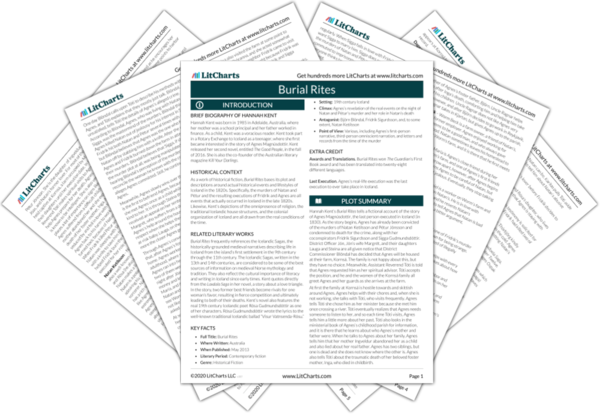LitCharts assigns a color and icon to each theme in Burial Rites, which you can use to track the themes throughout the work.
Women, Violence, and Innocence
Literacy, Language, and the Icelandic Landscape
Names, Superstition, and Christianity
Class, Colonization, and Hierarchies of Power
